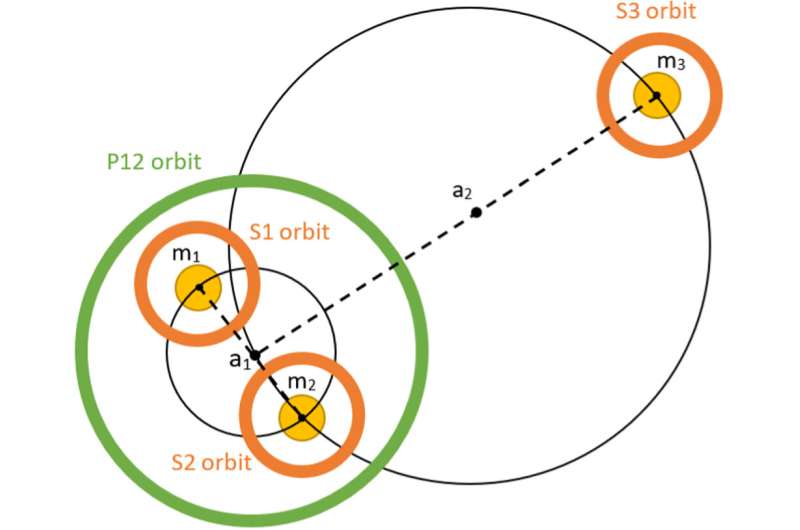This article has been reviewed according to Science X's editorial process and policies. Editors have highlighted the following attributes while ensuring the content's credibility:
fact-checked
trusted source
proofread
Astrophysicists catalog all known planet-hosting, three-star systems

A planetary physicist at The University of Texas at Arlington is the lead author of a study that catalogs all known planet-hosting, triple-stellar systems—those having three or more stars with planets.
Manfred Cuntz, professor of physics, led the project, titled "An Early Catalog of Planet-hosting Multiple-star Systems of Order Three and Higher." This study provides a thorough bibliographic assessment of planet-hosting, triple-stellar systems.
It was recently published in The Astrophysical Journal Supplements Series. Co-authors include UTA alumni G.E. Luke, Matthew Millard and Lindsey Boyle, as well as Shaan D. Patel, a doctoral-bound graduate student.
The paper offers a system classification that considers the various types of planetary orbits among other factors. Additionally, the authors examine past controversies and planet retractions based on the criteria for what constitutes a planet-hosting, triple-stellar system.
Most planets, such as all in Earth's solar system, orbit a single star. About 100 known planets are members of stellar binaries, the authors wrote in their study.
"The number of planets found to be hosted by higher-order systems is relatively small—about 40 for triple and quadruple systems combined, with the exact number depending on whether some controversial or unconfirmed cases are included," Cuntz said. "The number of confirmed planets in triple-stellar systems currently stands at about 30, which is approximately 0.5% of the total number of planets identified. This aspect makes those planets very special."
The NASA Kepler Space Telescope, which was operational from 2009-18, aided in the science of discovering planet-hosting, triple-stellar systems, Cuntz said. Scientists expect the number of known systems to increase, particularly with the abilities of the James Webb Space Telescope, which was launched in 2021.
The authors note that the overwhelming majority of triple-stellar system planets are Jupiter-type, meaning they are gas giants, and the host stars are relatively massive, compared to typical main-sequence stars. However, some Earth-mass planets have been found as well.
Triple-stellar systems can be divided into two subgroups, each of which travels in a relatively large orbit around the system's center of mass. In a triple-stellar system, two of the stars usually form a close binary pair (two stars that are gravitationally bound to and in orbit around each other), and the third orbits that pair from a farther distance. Systems with more than three stars are expected to produce even more complicated orbiting arrangements.
"The existence of planets in triple-star systems is extremely challenging theoretically, both regarding their formation and orbital stability," Cuntz said. "These topics are a stark motivation of future UTA research, also involving students."
More information: M. Cuntz et al, An Early Catalog of Planet-hosting Multiple-star Systems of Order Three and Higher, The Astrophysical Journal Supplement Series (2022). DOI: 10.3847/1538-4365/ac9302
Provided by University of Texas at Arlington


















